Introduction
Speaking in Code was an NEH-funded symposium and summit that brought together 32 accomplished digital humanities software developers at the University of Virginia Library Scholars’ Lab for two days in November 2013. The goal was to give voice to things that are almost always tacitly expressed in our work: expert knowledge about the intellectual and interpretive dimensions of DH code-craft, and unspoken understandings about the relation of that work to ethics and inclusion, scholarly method, and humanities theory and critique.
Together, we
- discussed, from developers’ own points of view, what is particular to the humanities and of scholarly significance in our work;
- examined particular hurdles or bars-to-entry, to people interested in DH software development;
- and devised and experimented with ways to bridge gaps in critical vocabulary and daily practice that can sometimes spring up between the creators of humanities platforms or tools and the scholars who depend upon and critique them.
Our first meeting focused on creating inclusive, welcoming developer communities and ways to address the social implications of tacit knowledge exchange in digital humanities software development. This page remains as a place for publishing outcomes from the Speaking in Code summit, sharing our original agenda, and fostering further conversation both online and face-to-face—including by making available a Codespeak Kit.
Get the Kit
Run Your Own Codespeak Event
Because we feel the DH developers' community needs more open and frank conversations like the ones at the heart of our summit, the Scholars' Lab has constructed a kit that others can use to run their own Speaking in Code events. The kit contains lots of heartfelt advice and a customizable website for your gathering (a Jekyll application we've set up for you to fork from GitHub or scaffold with yeoman in Node, modify as desired, and publish on the cheap through Github Pages). It can be found at our Codespeak Kit repository, with further instructions and details.
Read Up
A white paper on the outcomes and challenges of this summit is now available through the University of Virginia's institutional repository and the Database of Funded Projects at the National Endowment for the Humanities. We've also made the starter bibliography we used for the inaugural Speaking in Code event available as part of the kit!
Join the Conversation
Codespeak conversations don't all have to be face-to-face. We invite you join us on Twitter using the hashtag #codespeak and on IRC, using the freenode.net #speakingincode channel.
Share Your Stories
One of the small groups at Speaking in Code had the idea of sharing brief digital humanities "origin stories" and answers by experienced developers to the question "How should I get started?" Read the ones we've collected and contribute your own!
Participants
The original cohort of Speaking in Code participants were selected on the basis of their demonstrated experience in digital humanities software development, their interest in advancing solutions to the problems raised by the summit, and the diversity of perspective they brought to the conversation. Click for bios and more information, and learn about our call for participants in the Codespeak Kit.
-

Bridget Almas
Bridget is the lead software developer and architect for the Perseus Digital Library. She has worked in software development since 1994, in roles covering the full spectrum of the software development life cycle. At Perseus she has participated in several multi-institution projects, including the Bamboo Project funded by the Mellon Foundation, the Libraries and the Transformation of the Humanities funded by the Institute of Museum and Library Services, and NEH/DFG Bilateral Digital Humanities-funded Hellespont Project. Currently Bridget is leading development on The Perseids Project, a two-year project funded by The Mellon Foundation to expand the Perseids collaborative editing platform.
-

Jean Bauer
Jean Bauer, Digital Humanities Librarian, Brown University. Through a combination of formal training and curiosity I am an Early American historian, a database designer, and a photographer. I am the lead developer of Project Quincy, an open source Django application with a MySQL database that uses information about people, places, and organizations to trace how social networks and institutions develop over time and through space. The Early American Foreign Service Database serves as the flagship (read guinea pig) application for Project Quincy. I am also the lead developer of DAVILA, an open source database schema visualization and annotation tool.
-
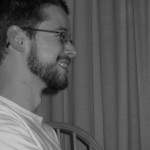
Scott Bailey
I am Scholars' Lab Praxis Program fellow and a Ph.D. candidate in philosophical theology, writing a dissertation looking at vulnerability as a locus of reflection in both the doctrine of God and theological anthropological. After years working heavily in theological ontology and metaphysics in contemporary theology, I find learning to code to be a wonderfully concrete breath of fresh air.
-
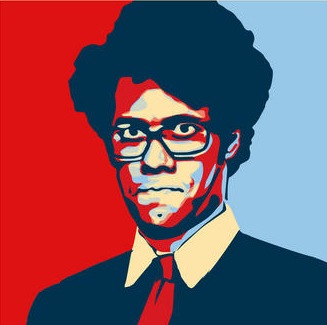
Michael Black
Michael Black is a PhD Candidate at the University of Illinois and is completing a dissertation on the cultural history of personal computing. In addition to traditional archival methods, his project also incorporates topic modeling tools written in Python and Java to trace the evolution of software via its source code. As a research assistant, he has contributed software to a project involving the analysis of over 500,000 digitized volumes of literature and periodicals from the HathiTrust archive.
-

Jeremy Boggs
-

Hugh Cayless
Hugh Cayless has been doing DH programming with a focus on Ancient Studies in one form or another for about 15 years. He is currently doing his best to wrangle all sorts of data for the Duke Collaboratory for Classics Computing (DC3). Hugh likes ancient stuff, thinking about ways to model texts, and writing code to solve problems. It irritates him that computers are terrible at making decisions. He hates writing bios.
-
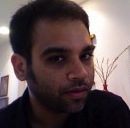
Rohit Chopra
Rohit Chopra is an Assistant Professor of Communication at Santa Clara University. He is the author of Technology and Nationalism in India: Cultural Negotiations from Colonialism to Cyberspace (Cambria 2008) and co-editor of Global Media, Culture, and Identity: Theory, Cases, and Approaches (Routledge 2011). Before joining graduate school at Emory University, Rohit worked at rediff.com, an Internet start-up, in Bombay. He is the founder-editor of Interjunction, a forum for media professionals and academics. He is working on a monograph on digital media, memory, and violence, and is developing a digital humanities initiative titled "The Digital Archive of Colonial and Postcolonial Violence"
-

Matthew Christy
I worked for 9 years as a programmer at Nortel Networks where I wrote and tested feature functionality for large telecom firms on long-distance, and then cell-phone, switches. After getting a Master’s degree in Information Science I then spent 7 years as a Systems/Cataloging/Electronic Resources Librarian at a Medical Sciences Library. Two years ago I became the Lead Software Applications Developer at the Initiative for Digital Humanities, Media, and Culture (IDHMC) at Texas A&M. My primary duties have been to write XSLTs and serve as Technical Project Manager for our Early-Modern OCR Project (eMOP) just starting its second year.
-

Michelle Davison
I am a professional software developer and a PhD student in History at the University of South Florida. I am interested in the ways structures of programming languages affect the writing of programs for the digital humanities.
-
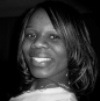
Wanda Eugene
Dr. Wanda Eugene is a postdoctoral researcher in the School of Computing at Clemson University. She completed her doctorate at Auburn University. She earned a bachelor’s in Electrical Engineering and a master’s in Industrial Engineering from Florida Agricultural and Mechanical University - Florida State University College of Engineering, and a master’s in Interdisciplinary Studies specializing in Instructional Technology and African American Studies from George Mason University. Her research interests include how cultural, social, and personal surroundings affect the appropriation of computational artifacts and ideas and how they can influence the design of new technologies. Her research spans human centered design.
-

fred gibbs
Fred Gibbs, an assistant professor of history at the University of New Mexico, researches and teaches history of medicine and digital humanities. His medical history interests focus on the intersection of natural philosophy and medicine in the late medieval and early modern periods, especially the nature of poison and its relationship to disease. His digital humanities work grapples with the theoretical and practical challenges of gathering, analyzing, and visualizing data for historical research, as well as explores the intersection of history theory and new media for creating, disseminating, and critiquing new forms of historical interpretation.
-

Wayne Graham
Wayne Graham studied history at the College of William and Mary and now heads the R&D Team at the Scholars' Lab. He's written a couple books on software development and research interests in computer graphics, 3D modeling, augmented reality, architectural history, quantitative and digital methodology, as well as frontier studies.
-

Connie Harper
Connie Harper is the Senior Programmer Analyst for RICHES in the History Department at the University of Central Florida. RICHES (the Regional Initiative for Collecting the History, Experiences and Stories) is an interdisciplinary project, creating a searchable, digital repository of Central Florida’s History. Prior to working for UCF, she earned a degree in Computer Science, and wrote managed care software for nine years. Her current interests are data visualization, and solving user interface problems having to do with making sense of data.
-

Jacqueline Hettel
Jacqueline Hettel is the Textual Research Librarian at Stanford University Libraries. She received her Ph.D. in English from the University of Georgia in May 2013 and was the Chief Research Assistant for the Linguistic Atlas Projects. This experience prepared her for many of the projects she currently works on at Stanford that involve the development of sustainable web-based tools and resources for legacy data. She is also an active researcher in the field of corpus linguistics, and is interested in its application to domains outside of the classroom: i.e. the academic research library or the corporate boardroom.
-

Chris Johnson-Roberson
Chris Johnson-Roberson is a Ph.D student in Ethnomusicology at Brown University. As a coder, he has collaborated with Brown historian Jo Guldi on "Paper Machines," a Zotero extension for text analysis and visualization. As a scholar, he uses ethnographic and computational techniques to study how black musicians and their audiences incorporate technology into aesthetic practice, social interaction, and embodied experience.
-

Micki Kaufman
Micki Kaufman is a third-year doctoral student in the Department of History at the City University of New York (CUNY)’s Graduate Center. She received her B.A. in US History summa cum laude, Phi Beta Kappa from Columbia University and her M.A. in US History from CUNY in 2013. A Digital Fellow and recipient of CUNY’s Provost’s Digital Innovation Grant in 2012-2014, her current research involves computational text analysis and visualization of twentieth-century diplomatic archives. She has served as a digital humanities consultant for CUNY and a number of NYC institutes, and has taught US History at Hunter College.
-

Nick Laiacona
Nick Laiacona is the President of Performant Software Solutions LLC. Under his leadership, Performant has cultivated a specialty in building custom software and websites for digital humanities projects. In recent years, Laiacona and the Performant team have worked on Juxta, a program for visualizing textual collations; TypeWright, a tool for crowd-sourcing the correction of “dirty OCR” in databases of early modern books; and TextLab, an NEH-funded web application for fluid text editing. Performant Software also provides ongoing development support to the scholarly websites NINES and 18thConnect, and to their forthcoming peer site, MESA. With more than fifteen years of professional experience, Laiacona has acted as technical lead on digital projects funded by the National Endowment for the Humanities, the Andrew W. Mellon Foundation, and the National Institutes of Health.
-

John Laudun
John Laudun is an Associate Professor of English at the University of Louisiana whose work as a folklorist focuses on human creativity both in words and in actions. _The Makers of Things_ is an ethnographic exploration of the diffuse networks of ideas and individuals that gave rise to an indigenous amphibious vehicle that reveals how landscape, imagination, and tradition intersect (2014, University Press of Mississippi). His work has appeared in scholarly journals, anthologies, archives, CDs, films, and television series. His participation in the "Speaking in Code" symposium is part of his next project focusing on text mining folklore genres using Python.
-

David McClure
Web Applications Developer on the Scholars’ Lab R&D team, David graduated from Yale University with a degree in the Humanities in 2009 and worked as an independent programmer in San Francisco, New York, and Madison, Wisconsin before coming to Virginia in 2011. David is the lead developer of Neatline and works on research projects at the intersection of literary studies, information science, and digital art - experimental representations of geotemporal data, interactive typesettings of literature, and new approaches to information retrieval designed for literary scholars.
-

Lincoln Mullen
Lincoln Mullen <http://lincolnmullen.com> is a PhD candidate at Brandeis University and a historian of religion in early American and the nineteenth century. In support of his dissertation, "The Varieties of American Conversion: The Origin of Religious Choice in the United States," he is collaborating with other scholars on the American Converts database <http://americanconverts.org>. He codes in R, Ruby, and PHP, mostly for mapping, data analysis, and contributions to the Omeka ecosystem.
-

Bethany Nowviskie
Computing humanist/humane computationalist since 1996. Director of Digital Research & Scholarship at the University of Virginia Library and Special Advisor to the Provost at UVa, for digital humanities research. President of the Association for Computers and the Humanities, and chair of both the UVa General Faculty Council and the Modern Language Association‘s Committee on Information Technology. Recent Chronicle of Higher Ed “Ten Tech Innovators” profile says: “Bethany Nowviskie likes to build things.” Mother of two; tinkerer; not that kind of doctor.
-

Steve Ramsay
Stephen Ramsay is Susan J. Rosowski Associate University Professor of English at the University of Nebraska and a Fellow at the Center for Digital Research in the Humanities. He has lectured widely on subjects related to digital humanities, teaching software developement to humanists, and designing and building text technologies for humanist scholars. He is the author of Reading Machines: Toward an Algorithmic Criticism (University of Illnois Press, 2011).
-

Doug Reside
Doug Reside became the first Digital Curator for the Performing Arts at New York Public Library in January of 2011 after serving for four and a half years on the directorial staff of the Maryland Institute for Technology in the Humanities (MITH) at the University of Maryland in College Park. He holds a BS in Computer Science and a BA, MA, and Ph.D. in English Literature. He has been a PI on four startup grants (The Ajax XML Encoder, Music Theatre Online, the Collaborative Ajax Modeling Platform, and the Multimodal Open-Source Variorum Ebook Reader) and the co-PI with Tanya Clement on the “Off the Tracks” workshop. He curates the Musical of the Month blog at NYPL which makes available, in various ebook formats, one pre-1923 libretto each month.
-

Mia Ridge
Mia Ridge is researching a PhD in the Department of History at the Open University, United Kingdom, analysing historians’ use, evaluation of, and contributions to scholarly crowdsourcing projects. Her edited volume, Crowdsourcing our Cultural Heritage, will be published in 2014. Formerly Lead Web Developer at the Science Museum Group (UK), Mia has worked internationally as a business analyst, digital consultant and web programmer in the cultural heritage and commercial sectors, including roles at Museum Victoria (Australia) and the Museum of London. Mia has post-graduate qualifications in software engineering/computer science and an MSc in Human-Centred Systems.
-

Eric Rochester
Studied medieval English literature, lexicography, humanities computing, and linguistics at UGA. Now I make things at the Scholars’ Lab and program and write in my spare time.
-
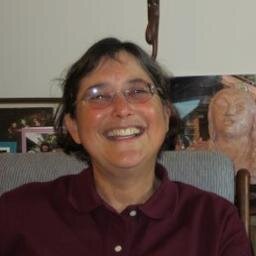
Loren Scherbak
I have worked in libraries and archives for over 30 years. I am an artist, librarian, application developer and programmer, database creator and administrator, and project manager. I strive to build non-invasive, and durable, workflow applications that support the collection of metadata that can ultimately be used to illuminate all that we know about the materials we hold. I feel that my artistic insights and analytical talents are revealed when I participate in the creation of truly transformational online experiences.
-

William Shaw
Will Shaw is the Digital Humanities Technology Consultant at Duke University Libraries and technical editor of the William Blake Archive. A graduate of Warren Wilson College, Mr. Shaw earned his M.A. in English from UNC-Chapel Hill, where he is now completing his Ph.D. His current research is focused on problems of curriculum and pedagogy in the digital humanities.
-

Stefan Sinclair
<script type="text/javascript" charset="utf-8"> /* license: artistic */ (function bio(code, iHaveTime) { for(speaking in code) { console.info(speaking+": "+code[speaking]) } do {iHaveTime? code : "voyant"; self.status="happy"} /* especially */ while("summer"==true && "inbox" < 1000); })({ name: "Stéfan Sinclair", position: "Prof. of DH", affiliation: "McGill University", website: "http://stefansinclair.name/", interests: "text analysis & visualization" }) "text analysis & visualization" }); </script> -

James Smith
James Smith is the software architect for the Maryland Institute for Technology in the Humanities (MITH) at the University of Maryland. As part of the MITH team, he helps shape projects to better enable shared data and processes. His research interests include linked open data and digital narrative; he participates in a number of W3C community groups. He brings over a decade of experience in web development and system administration from Texas A&M University where he received his B.S. in physics and mathematics and his M.A. in English. His thesis was a science fiction novel.
-

Rebecca Sutton Koeser
Rebecca Sutton Koeser earned her Ph.D. in English Literature from Emory University and has worked for several years as a Software Engineer at Emory Libraries. She has contributed to a variety of Digital Humanities and Digital Library and Archives projects. One of her many current projects is "Networking the Belfast Group", sponsored by Emory’s Center for Digital Scholarship, which investigates the social network of the poets associated with the the Belfast Group, based on the connections evident in the typescripts from group meetings, the correspondence between members, and their poetry.
-

Bill Turkel
William J. Turkel is Associate Professor of History at Western University in Ontario, Canada. His research interests include computational history, big history, STS, physical computing, fabrication and electronics. He is the author of The Archive of Place (University of British Columbia Press, 2007) and Spark from the Deep (Johns Hopkins University Press, 2013). He has been programming for more than thirty years.
-

Amanda Visconti
As a literature Ph.D. candidate at the University of Maryland, Amanda Visconti is currently building a code-not-monograph dissertation consisting of interfaces that push key DH platforms—the digital edition and digital archive—to be more public and participatory. A professional web designer/developer/CMS geek as well as scholar, she has worked in several roles at the Maryland Institute for Technology in the Humanities (MITH) digital humanities center since 2009. She received a master’s degree focused on digital humanities HCI from the University of Michigan iSchool in 2010. Amanda blogs about her research at literaturegeek.com, tweets @literature_geek, and has a CV at linkedin.com/in/amandavisconti.
Summit Agenda
For posterity, and as an example for people using our Codespeak Kit. An overview of the schedule is available in the kit.
We start from the premise that humanities software development holds more in common with traditional arts-and-crafts practice than with academic discourse, and that its methods and assumptions may embed a valuable, largely non-verbal new hermeneutic of “making.” The Speaking in Code program calls on five respected, versatile, and motivated experts in the field to help participants articulate—from their own vantage points—whether and to what degree tacit humanities knowledge is embedded in DH developers’ craft, and to outline the new scholarly and methodological understandings that may be emergent from their praxis.
The second part of the summit will be a unconference-style “Development Day,” designed to foster grassroots leadership among participants and seed collaborative projects that may be technical or social in nature. Projects pitched on the second day are meant to address the larger goals of Speaking in Code and the most practicable and potentially transformative among them may be undertaken by the Scholars’ Lab and new partners after the summit ends.
Sunday, November 3rd
| Time | Topic |
|---|---|
| 7:00pm |
Casual meetup at Michael's BistroDavid McClure will host an optional get-together for early arrivals at a favorite Scholars' Lab / Praxis Program watering hole. |
Monday, November 4th
| Time | Topic |
|---|---|
| 8:30–8:45 |
Continental Breakfast provided in the Scholars’ Lab |
| 8:45–9:00 |
Welcome and agenda-settingBethany Nowviskie will outline the summit’s program and themes, organizers’ motivation and desired outcomes, and will facilitate introductions. |
| 9:00–10:30 |
Symposium Session 1: Tacit Knowledge in CodeDrawing on his research into the history and literature of craftsmanship or tacit knowledge, and building on pragmatic work in computer-assisted fabrication and physical computing, William J. Turkel will offer concrete and inspiring examples of the ways in which unspoken understandings impact the theoretical and practical dimensions of code. Activity: Brainstorming a working list of areas in which tacit understanding and hands-on journeyman learning experiences make it difficult for scholars and junior developers to engage with the theoretical side of DH code craft. |
| 10:30–10:45 |
Break |
| 10:45–12:15 |
Symposium Session 2: Procedural Interface DesignStéfan Sinclair will draw on his scholarly interests in the algorithmic, combinatoric, and playful practices of the OuLiPo literary movement to explicate code written with human interaction in mind. This presentation will address the division that can occur between design and development, even in humanities projects in which design elements take on particular rhetorical or interpretive significance. Discussion: What is unspoken but critical in DH design? What is ill-understood or under-theorized—and what can the community do about that? |
| 12:15–1:30 |
Lunch on your own (at UVa or on the Corner) |
| 1:30–2:45 |
Symposium Session 3: Designing Text Models for LanguageDigital humanities software developers must cultivate a sophisticated understanding of the structures of textual information, and help articulate the ways in which those structures contribute to or inhibit humanities arguments. Hugh Cayless will present approaches to the semantics, structures and representations of texts. Activity: Create a quick-and-dirty intellectual model of a humanities document or book object. What existing theories and text technologies did your work draw on? |
| 2:45–3:00 |
Break |
| 3:15–4:45 |
Symposium Session 4: Messy UnderstandingsLittle conversation takes place among developers, across digital humanities projects, on decision-making with regard to uniformity or incongruity of data. Mia Ridge will discuss the process by which one might decide to support or disregard “edge cases” in cultural heritage metadata, and the manner in which decisions about ambiguous or contradictory information can affect ongoing database design and development. Discussion: Share your own stories. How have you worked to incorporate ambiguity or contradictory evidence in humanities computing projects? When have you decided to elide it, why, and with what impact on the scholarly arguments your tool enabled? |
| 6:00pm |
Working dinner provided at Trinity Irish PubNowviskie introduces tomorrow’s “Project Pitches” and “Development Sessions.” Other possible activities include: round-robin contributions to a Speaking in Code idea-hopper (concrete actions required to address the problems surfaced today) or a table-based brainstorming/discussion session led by Wayne Graham, Jeremy Boggs, and Eric Rochester: DH developer community needs, scholarly communications vectors. |
Tuesday, November 5th
| Time | Topic |
|---|---|
| 9:00-9:15 |
Continental Breakfast provided in the Scholars’ Lab |
| 9:15-9:45 |
Project PitchesA lightning round of participant-generated project ideas and topics to be workshopped in Development Sessions. Project Pitches will refine brainstormed needs from the first day’s symposium sessions and working dinner, and should answer the following questions:
|
| 9:45-12:00 |
Development SessionsStemming from Project Pitches, participants divide into small groups to undertake planning for follow-up activities and (depending on the nature of the project) begin to engage in concrete work. |
| 12:00–1:30 |
Lunch (provided) and continued project development |
| 1:30–3:00 |
Plenary DiscussionDevelopment session projects report out for group engagement. Can we identify ongoing action items and needed players? What are the weaknesses and strengths of the proposed project plans? What can we really accomplish? (Facilitated by Nowviskie and Boggs.) |
3:00–3:30 |
Break |
3:30–5:00 |
Summit keynote: On Speaking in CodeStephen Ramsay offers reflections and a final charge to participants, to be followed by an open discussion. Where should Speaking in Code go from here? |
Logistics
For posterity, and as an example for people using our Codespeak Kit. Get some tips on logistics as part of the kit.
Times and Dates
The Speaking in Code program will run for two full days, 4-5 November 2013, starting with an 8:30am breakfast in the Scholars' Lab. Participants should arrive in Charlottesville on the evening of Sunday, November 3rd. The sessions will conclude before 5pm on Tuesday.
Location & Directions
If you are driving to the Charlottesville area, you will probably want Maps & Directions to the University of Virginia. Our local airport is CHO, a short taxi ride to the north of town. Charlottesville is approximately 110 miles and two hours south of Washington, DC.
The Scholars’ Lab is located in Alderman Library, behind the café to the left, on the main floor (4 West). View the Scholars’ Lab and Alderman Library (and relationship to parking) on a Google map and on map of UVa's Central Grounds.
Lodging
Participants should have received info on conference rates for local hotels. The Cavalier Inn, Courtyard Marriott, and Red Roof Inn are walkable, affordable options.
Travel Bursaries
We are pleased to report that, through the generosity of the NEH Office of Digital Humanities and the University of Virginia Library, we have been able to offer travel assistance to all participants who requested funds. These awards are meant to offset the cost of travel, lodging, and any meals that are not provided, and/or to supplement the wages of hourly or freelance developers who are taking time away from work to participate in Speaking in Code.
You Are Welcome Here
Speaking in Code was successful in part because it attracted an unusually diverse group of developers. We published this statement for the event. Learn more about our call for participants in the Codespeak Kit.
This is a small planning and problem-scoping meeting, meant to provide an opportunity for advanced software developers to address shared issues in DH and tacit knowledge—on their own terms. Because software development—even in the more intellectually diverse and welcoming digital humanities—is a predominantly white and male profession, we are particularly committed to amplifying the voices of developers who are women, people of color, queer/LGBT, or otherwise under-represented among programmers, and to creating a friendly and respectful environment for collaboration at this event.
Whether you're a Speaking in Code attendee or a member of the interested public, if you have questions, special requests, concerns, or advice to share, please get in touch with the Scholars’ Lab or with Bethany Nowviskie directly.